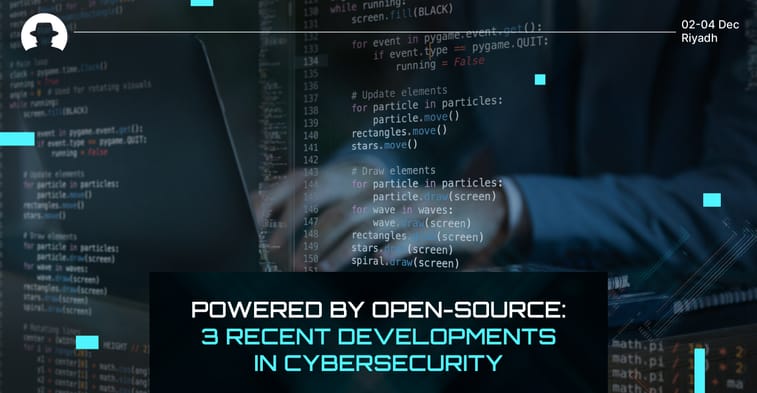
When privacy creates blind spots: the exploitation of privacy-first tech
New research reveals how privacy-first technologies are creating fraud blind spots, as AI-driven attacks scale faster than detection capabilities.
Read More
We love open-source cybersecurity projects. From foundational tools like Nmap to modern frameworks like Semgrep, open-source initiatives have been consistent drivers of innovation; and they’ve enhanced transparency and fostered collaboration along the way.
Over the last few years, open-source haven’t just kept pace with evolving cyber threats – they’ve often been at the forefront of developing the most robust security solutions available today.
When we spoke to open-source advocate Paulino Calderon (Co-Founder of Websec), he summed up the essence of open-source collaboration:
“I genuinely believe in the power behind the democratisation of knowledge. I joined a program sponsored by Google that gave funds to open-source projects, and the infamous port/service scanner Nmap took me under its wing. I learned much from collaborating with people worldwide and sharing contributions with millions of users.”
Calderón's journey is evidence of how open-source platforms can serve as incubators for talent and innovation – enabling individuals to contribute to tools that benefit the global community.
In February 2025, the Open Source Security Foundation (OpenSSF) introduced the Open Source Project Security Baseline (OSPS Baseline). This framework offers a structured set of security requirements aligned with international standards, aiming to bolster the security posture of open-source software projects. By providing actionable guidance, the OSPS Baseline empowers developers to enhance their projects' security, fostering a more resilient open-source ecosystem.
Semgrep, an open-source static analysis tool, has gained prominence for its ability to identify security vulnerabilities in codebases. In early 2025, Semgrep secured USD $100 million in Series D funding to further develop its AI capabilities and expand its reach (as reported by The Wall Street Journal). While transitioning some advanced features to a paid model, Semgrep is committed to its open-source roots – making sure that individual developers continue to benefit from its core functionalities.
To address the growing concern of supply chain attacks, Chainguard introduced Wolfi – a Linux distribution designed to enhance software supply chain security. As reported by Wired, Wolfi meticulously verifies and catalogs every component in software containers, to provide enterprises with a robust foundation to build secure applications. This initiative aligns with broader efforts to fortify the software development lifecycle against potential threats.
Beyond tool development, the existence of open-source projects plays an important role in cybersecurity education. Resources like OWASP Web Security Testing Guide offer comprehensive insights into application security, for example – an invaluable reference for both new practitioners and seasoned professionals.
Any knowledge that’s freely accessible, and that welcomes open-source input, helps to foster a culture of continuous learning and improvement in the field of cybersecurity. And that’s absolutely essential if we want to maintain a flow of engaged, ambitious, curious and creative talent into this sector.
To put it bluntly, the importance of open-source contributions in cybersecurity can’t be overstated. Collaborative efforts, transparency, and shared knowledge are absolutely necessary for building resilient security infrastructures.
When we embrace and support open-source initiatives, we enhance our collective defense mechanisms and create the potential for more advanced security measures to arise from shared knowledge.
Calderon put it like this:
“Together, we can make significant strides toward a future where technology serves as a bridge rather than a barrier, connecting us in our shared pursuit of progress.”
And it’s true: the collaborative spirit of the open-source community continues to be a beacon of innovation and resilience in the ever-evolving realm of cybersecurity.
Register now to join the global cybersecurity community in Riyadh this year.
Join the newsletter to receive the latest updates in your inbox.

New research reveals how privacy-first technologies are creating fraud blind spots, as AI-driven attacks scale faster than detection capabilities.
Read More
Cybersecurity founders share how Black Hat MEA helps them test ideas, prove product value, and grow their business.
Read More
Cybersecurity is now a leading barrier to financial innovation. New research explains why fraud, legacy systems and risk are slowing payments progress.
Read More